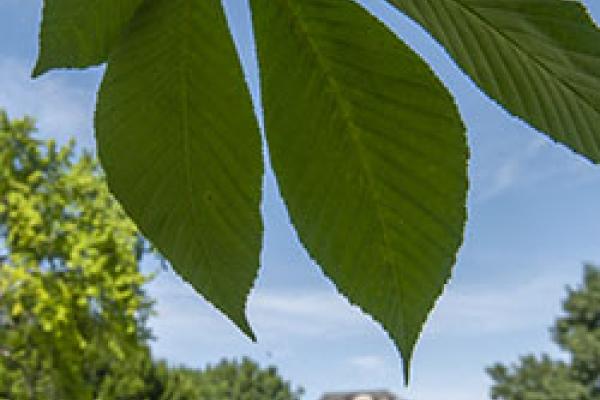
Environmental Science 7899 – Issues in Environmental Sciences
Watch the live seminar remotely via CarmenConnect
Seminar Chair: Gil Bohrer, bohrer.17@osu.edu
Seminar Coordinators: Michelle Smith, straley.23@osu.edu; Yanting Guo, zhao.1093@osu.edu
Course Requirements
This course is graded S/U. Satisfactory participation in this course includes all of the following:
- Attentive and active participation in lectures and discussion.
- Attendance at all classes, with one excused absence. If you must miss more than one class, see Dr. Bohrer.
- Advance reading for any seminars for which it is required
Tracing biogenic oxidation chemistry in the atmosphere: Insights from the Southeastern US
By Dr. Delphine Farmer, Colorado State University, Department of Chemistry
The atmosphere is an oxidizing environment in which organic molecules emitted by human activity and the natural environment are rapidly oxidized, either by fragmentation or functionalization processes. As molecules oxidize, their vapor pressures will change, potentially leading to formation and growth of particles in the atmosphere, which in turn affect the way in which sunlight interacts with the Earth's surface. Thus, understanding this oxidation chemistry - and how human activities are altering it - is essential for understanding the radiative balance and climate of the planet. Further, atmospheric oxidation chemistry leads to ozone formation, a key ingredient in smog. Both ozone and particles impact human health. In this talk, I will discuss new analytical approaches to measuring oxidized organic molecules in the atmosphere, and discuss recent measurements taken as part of the Southern Oxidant and Aerosol Study in Alabama (summer, 2013) and the Front Range Air Pollution and Photochemistry Experiment in Colorado summer, 2014).
Delphine Farmer is an assistant professor of chemistry at Colorado State University. She received her Ph.D degree in chemistry from University of California-Berkeley in 2006. For more information about Dr. Farmer please visit her website.
